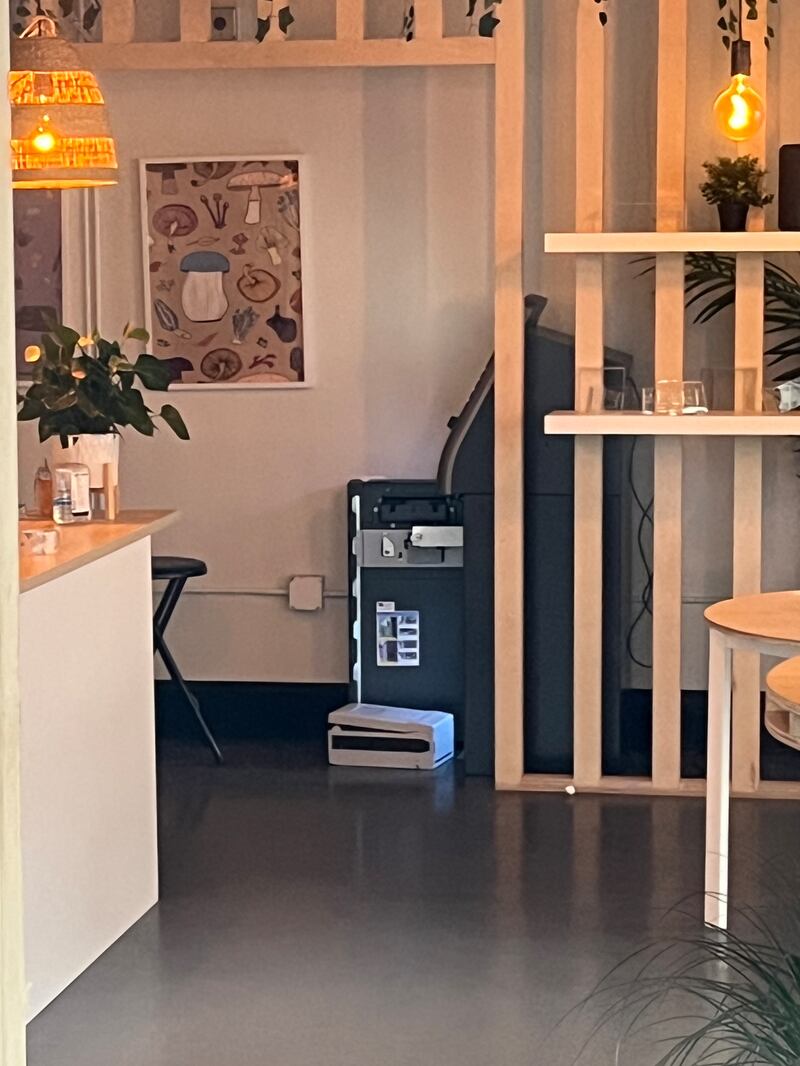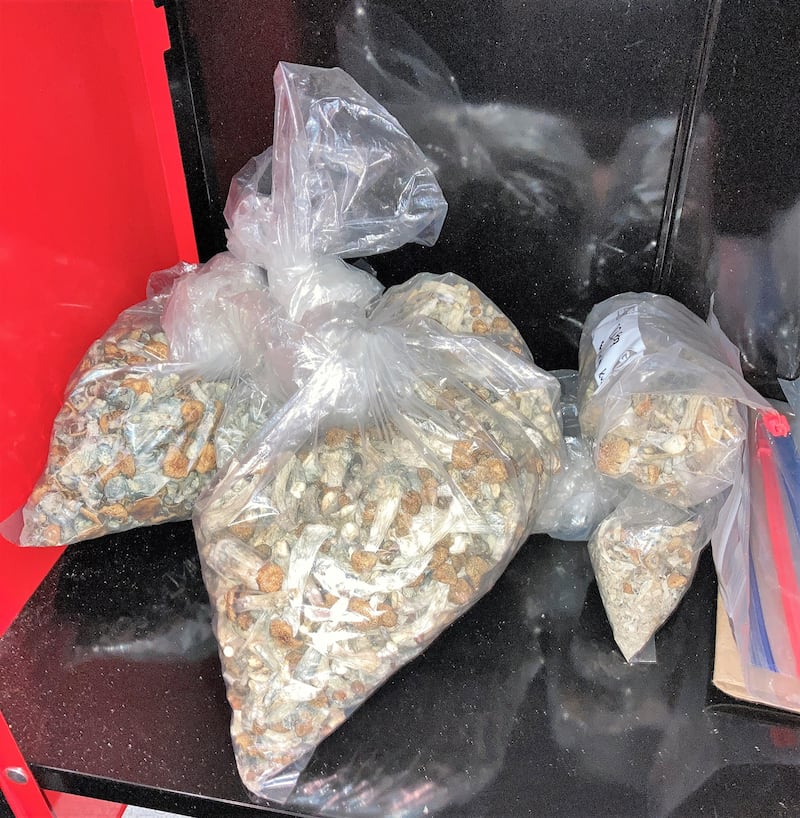Police raided the West Burnside psychedelic mushroom shop Shroom House early Thursday morning, seizing evidence and arresting multiple people, and putting an end to one of the city’s biggest holiday-season attractions.
Shroom House has been operating since Oct. 24, violating federal and state laws governing the use of psychedelic mushrooms in Oregon. That hasn’t deterred Portlanders, who lined up for over six hours on many days this month to purchase psychoactive fungi. A small queue formed this morning in the pouring rain before being told by a reporter that the store had been raided.
Portland Police Bureau spokesman Sgt. Kevin Allen confirmed the raid to WW early Thursday morning.
The shop’s likely owner, 32-year-old Steven Tony Tachie Jr., was booked in jail at 4:19 am on charges of money laundering and manufacturing or delivering a Schedule I controlled substance near a school. Police also arrested Jeremiahs Francis Geronimo, 32, and booked him on similar charges.
Victor B. Fabela, 25, and Ivan Mametyev, 38, were issued criminal citations for delivery of psilocybin, Portland police said. More than $13,000 in cash and “a large amount of suspected psilocybin products,” were seized during the 1 am raid by officers with the bureau’s Narcotics and Organized Crime Unit.
Two senior prosecutors with the Multnomah County District Attorney’s Office assisted with the raid, an office spokeswoman said.
Tachie, a Canada-based hip-hop artist, was working to open another shop in Colorado, according to a former employee who declined to be named for fear of retribution. Shroom House already has a sister store in Vancouver, B.C.
Former employees said Tachie drives a Mercedes G-Glass SUV, otherwise known as a G-Wagon, with Canadian license plates. He was in Portland in late October helping to set up the store, they said.
Tachie released several hip-hop songs under the name Young Sleezy in the early 2010s, according to a website run by one of his producers, DJ Hunt.
More recently, according to Young Sleezy’s Facebook account, he has recorded under the name “Tony Mason.” Another social media photo of Tony Mason shows a man sitting on a couch holding a semi-automatic rifle in one hand and a handgun in the other. Another rifle leans against the couch beside him.
A former employee of the store confirmed that the picture is of Tachie.
Related: Who’s Behind a West Burnside Storefront Selling Psychedelic Mushrooms at Retail?
Police conducted undercover purchases at Shroom House in preparation for the raid, a source familiar with the investigation says.
This morning, the store appeared to be emptied of merchandise, and there were signs of a hasty exit: The store’s ATM machine was open as if it had been emptied, and a visible empty cashbox suggested closure, as did the padlocked front door. But several people stood in line in the rain anyway.
Kurt Sickler, 59, was a return customer. He had purchased some psilocybin chocolates earlier this month. Shroom House required customers to fill out paperwork and join the “Shroom House Society” before making purchases. The application process was cumbersome and led to long lines.
“It was a hassle, and they were unorganized,” Sickler said. “But they where the only dealer in town, so I had to tolerate the sketchiness. I didn’t have any other options.”

Oregon state Sen. Elizabeth Steiner (D-Portland), the only public official who spoke out to WW about Shroom House before it was raided, said she was pleased that law enforcement had taken action. Steiner, a doctor, was one of the biggest proponents of Measure 109, the initiative that passed in 2020 and legalized the therapeutic use of psilocybin.
Clinical data show that psilocybin has groundbreaking benefits in treating depression, post-traumatic stress disorder, and substance abuse, but Oregon law is clear about how it’s to be used, Steiner said.
“This kind of store, and this use of psilocybin, is not what the voters intended,” Steiner said.
Measure 109 made it legal for adults to use mushrooms on the premises of a certified “service center” under the supervision of a facilitator who guides users through their trips. Both the service centers and the facilitators must be approved by the state—and, so far, none has been, according to the Oregon Health Authority, which administers the psilocybin licensing program.
Neither Measure 109, nor Measure 110, which decriminalized possession of up to 12 grams of mushrooms, made retail sales legal.
Though it appeared to be boutique, Shroom House had corporate attributes that suggested broader ambitions. It had a four-page sales manual called “Shroom House Sales Tactics” that told employees how to greet customers and how to explain the effects of taking psychedelic mushrooms.
Take 3 grams or more and you can expect “intense hallucinations, expanding bandwidth of thought, heavy feelings of euphoria, higher state of consciousness, and philosophical outlooks,” the manual says.

Shroom House also had a “General Infofmation [sic] Booklet” that emphasized cleanliness. Employees were required to clean the shop “every 1hr -- 1.5hrs.” For a “mid-day clean up,” workers were instructed to clean the shelves and display cases with an all purpose spray cleaner such as Lysol.
To make sure employees knew what Lysol was, Shroom House included a glossary at the end of the booklet: “Lysol, an all purpose spray cleaner, yellow bottle, used to clean objects and surfaces of bacteria and dirt.”
The Portland store had an ATM, also covered in the glossary: “ATM, technological machine, that distributes specific amounts of cash to customers. Customers can use if they have no cash on site. The ATM, has a $3 service charge, for any transaction of service.”
Shroom House managers were taskmasters, too. Working a 12-hour shift entitled employees to just 1 hour and 15 minutes of break time.
“All breaks taken by workers are to be written down on their time sheets,” the booklet says.

